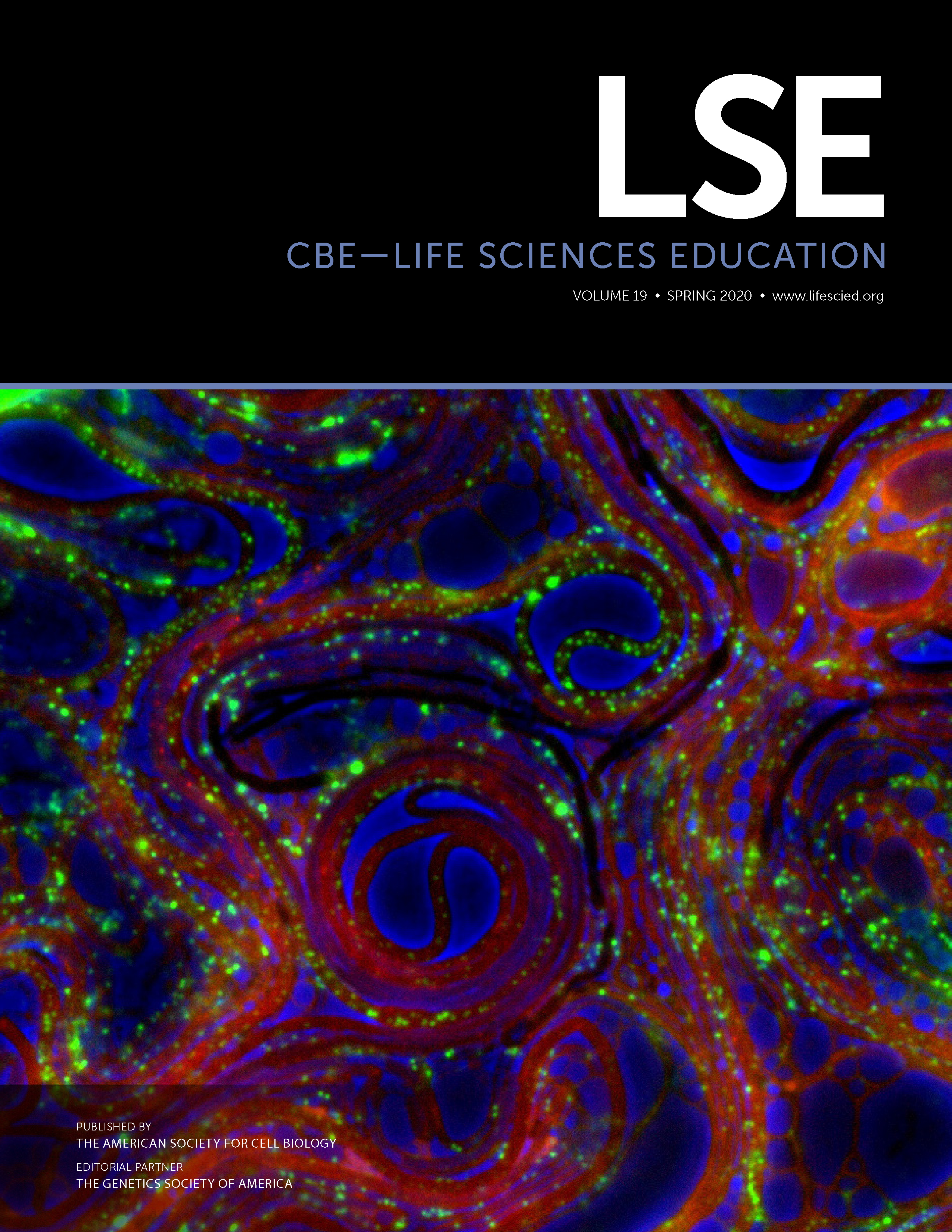Leveraging Multiple Analytic Frameworks to Assess the Stability of Students’ Knowledge in Physiology
Abstract
When a student explains a biological phenomenon, does the answer reflect only the product of retrieving knowledge or does it also reflect a dynamic process of constructing knowledge? To gain insight into students’ dynamic knowledge, we leveraged three analytic frameworks—structures–behaviors–functions (SBF), mental models (MM), and conceptual dynamics (CD). To assess the stability of student knowledge, we asked undergraduate students to explain the same physiological phenomenon three times—once verbally, once after drawing, and once after interpreting a diagram. The SBF analysis illustrated fine-grained dynamic knowledge between tasks. The MM analysis suggested global stability between tasks. The CD analysis demonstrated local instability within tasks. The first two analyses call attention to differences between students’ knowledge about the parts of systems and their organization. The CD analysis, however, calls attention to similar learning mechanisms that operate differently vis-à-vis external representations. Students with different mental models deliberated localization or where to locate the structures and mechanisms that mediate physiological responses, but students made these deliberations during different tasks and arrived at different conclusions. These results demonstrate the utility of incorporating dynamic approaches to complement other analytic approaches and motivate future research agendas in biology education research.



